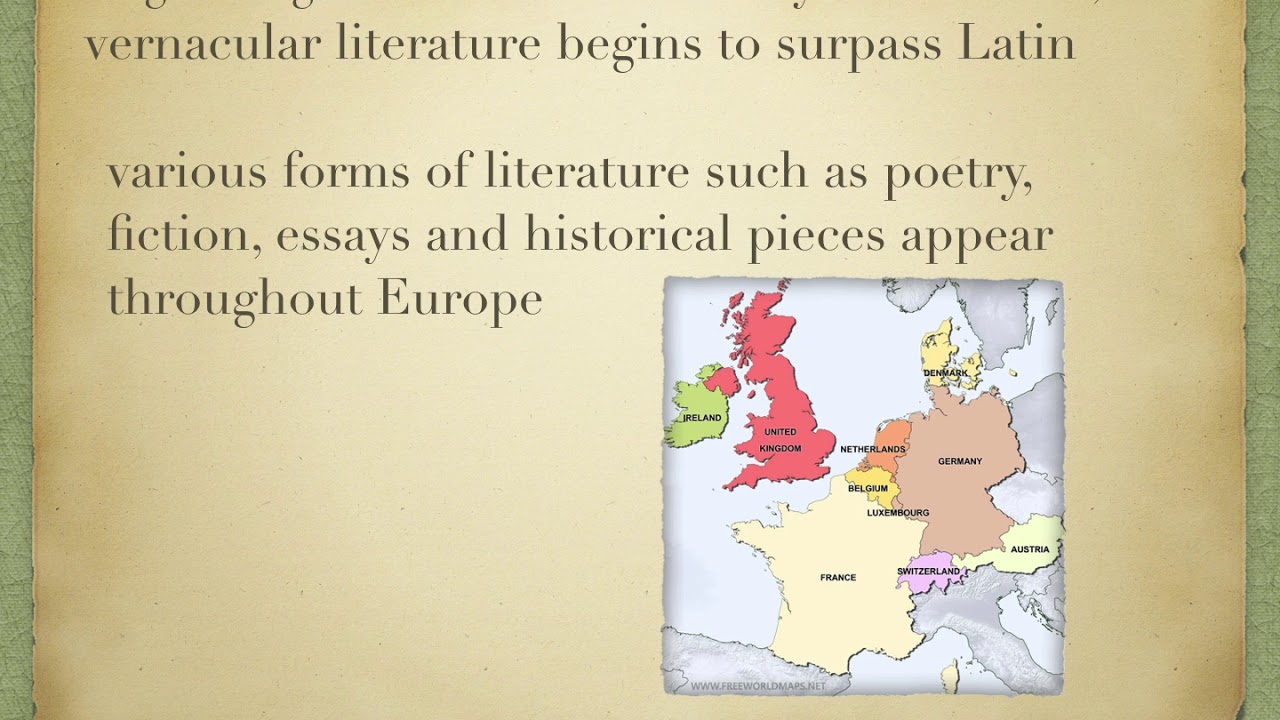The vernaculars of the western European countries emerged gradually, first as the spoken languages of the people, then as vehicles for popular writing, finally achieving official recognition. Many vernaculars—Spanish, Portuguese, Italian, and French—developed from Latin; these were the Romance (Roman) languages. Castilian, the core of modern literary Spanish, attained official status in the thirteenth century when the king of Castile ordered that it be used for government records.
In Italy the vernacular scarcely existed as a literary language until the eve of the Renaissance, when Dante employed the dialect of his native Tuscany in the Divine Comedy, and it was not until the early sixteenth century that Tuscan Italian won out over the rival dialect of Rome as the medium for vernacular expression.
In medieval France two families of vernaculars appeared: Southern Frenchmen spoke the langue d’oc, so called from their use of oc (the Latin hoc) for “yes”; their northern cousins spoke the langue °roil, in which “yes” was (the modern oui). The epic verses of The Song of Roland were composed in the langue doll, while the troubadours at the court of Eleanor of Aquitaine sang in Provencal, a form of the langue d’oc. By 1400 the langue avail of the Paris region was well on its way to replacing Latin as the official language of the whole kingdom; Provencal eventually died out. Another offshoot of the langue d’oc survives in Catalan, used in both Spain and France at the Mediterranean end of the Pyrenees.
In Germany and in England the vernaculars were derived from an ancient Germanic language. The minnesi ngers of thirteenth-century Germany composed their poetry in Middle High German, predecessor of modern literary German. The Anglo-Saxons of England had spoken a dialect of Low German. English achieved official recognition in the fourteenth century; meantime, it was coming into its own as a literary language with such popular works as Piers Plowman (see Chapter 10) and Chaucer’s Canterbury Tales (see Chapter 8).
Some of the vernaculars became international languages. In the Near East the Italian that had been introduced by the crusaders was the lingua franca, the Western tongue most widely understood; by the seventeenth century it would be replaced by French and in the twentieth by English. Meantime, Latin remained the international language of the church and of the academic world. Scholars worked diligently to perfect their Latin and, in the later Renaissance, to learn the rudiments of Greek and sometimes of Hebrew. They called themselves humanists, that is, devotees of what Cicero had termed studias humanitatis, or humane studies, which still included rhetoric, grammar, history, poetry, and ethics.
Humanism drastically changed attitudes toward the classical heritage. The medieval schoolmen had not disdained this heritage; they admired and copied its forms but transformed or adapted its ideas to fortify their own Christian views. The humanists of the Renaissance transformed their medieval heritage in the more secular spirit of their own age and in the light of their own more extensive knowledge of the classics. Reverence for the classics did not prevent some humanists from becoming enthusiastic advocates of the vernacular; the reverse was also true, as vernacular writers studied Cicero to improve their own style.

